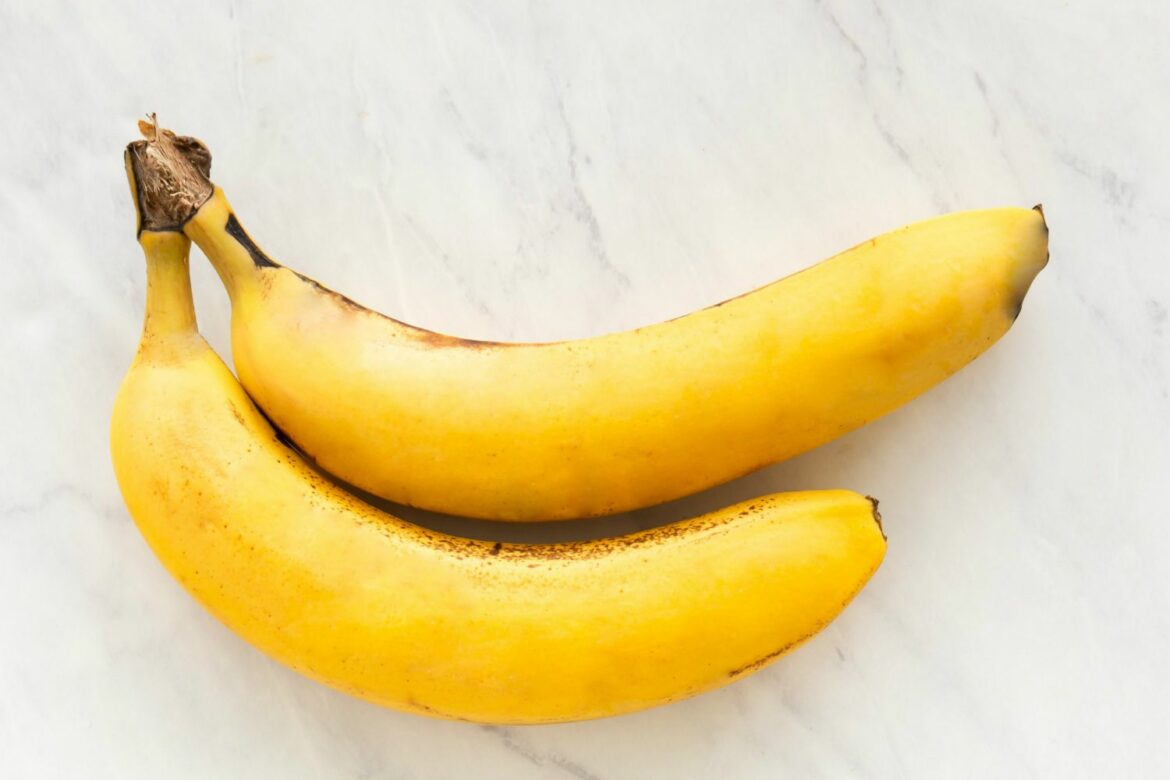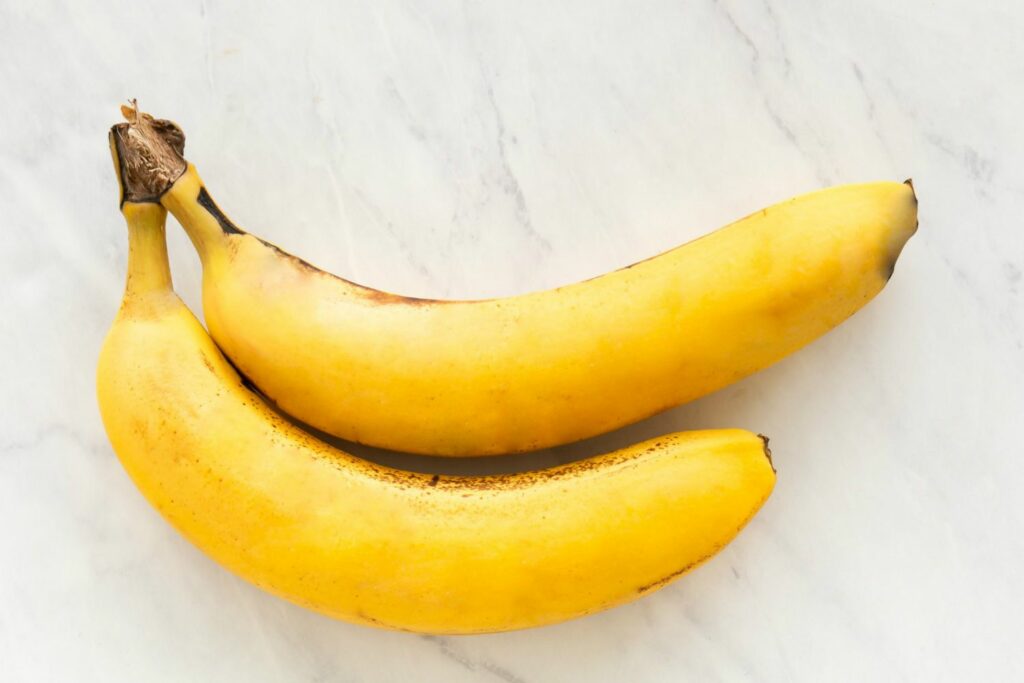Eating bananas every day can have several positive effects on your body due to their rich nutrient profile. Bananas are an excellent source of vitamins, minerals, fiber, and antioxidants, which can support various aspects of health. Here’s what might happen when you include a banana in your daily diet:
1. Improved Heart Health
- Potassium: Bananas are well-known for their high potassium content, which is vital for maintaining healthy blood pressure levels. Potassium helps balance the effects of sodium in the body and supports proper heart function by maintaining fluid balance and muscle contractions, including those of the heart.
- Vitamin B6: Bananas contain vitamin B6, which plays a role in heart health by helping to regulate homocysteine levels, an amino acid that, in high amounts, is associated with an increased risk of heart disease.
2. Better Digestion
- Fiber: Bananas are a good source of dietary fiber, particularly in the form of pectin (a type of soluble fiber). This fiber aids in digestion by promoting regular bowel movements and supporting a healthy gut microbiome.
- Prebiotic Effects: The resistant starch found in slightly green bananas acts as a prebiotic, feeding beneficial gut bacteria, which in turn may help improve gut health and immune function.
3. Better Blood Sugar Regulation
- Natural Sugars and Fiber: Although bananas are naturally sweet, they have a low to medium glycemic index, meaning they cause a slower rise in blood sugar compared to more refined carbohydrates. The fiber in bananas helps to slow down the absorption of sugar into the bloodstream, which can help prevent blood sugar spikes and crashes.
- Balanced Energy: The combination of natural sugars (like glucose, fructose, and sucrose) and fiber in bananas can provide a steady source of energy throughout the day without causing sharp fluctuations in blood sugar.
4. Boosted Mood and Mental Health
- Vitamin B6: Bananas are a good source of vitamin B6, which is essential for the production of neurotransmitters like serotonin and dopamine. These “feel-good” chemicals in the brain play a role in mood regulation and can help reduce feelings of anxiety or depression.
- Magnesium: Bananas also contain magnesium, which supports the nervous system and may help alleviate symptoms of anxiety, depression, and stress. Magnesium is known for its calming effect on the body.
5. Enhanced Muscle Function
- Potassium and Magnesium: These minerals are crucial for muscle function and preventing muscle cramps. Bananas can help replenish potassium and magnesium lost during exercise, making them a great post-workout snack.
- Electrolyte Balance: The high potassium content helps maintain proper electrolyte balance, which is key for avoiding muscle cramps, fatigue, and dehydration, especially after intense physical activity.
6. Support for Weight Management
- Satiety: The fiber in bananas contributes to a feeling of fullness, which may help prevent overeating by keeping you satisfied longer. The natural sugars in bananas can also provide a healthier alternative to high-calorie, sugary snacks that might otherwise contribute to weight gain.
- Low in Fat and Calories: A medium-sized banana contains only around 100 calories, making it a low-calorie, nutrient-rich snack option.
7. Better Kidney Health
- Potassium: Regular intake of potassium from foods like bananas can help maintain healthy kidney function. Potassium helps regulate fluid balance and prevents kidney stones from forming. However, for individuals with kidney disease, excessive potassium can be harmful, so it’s important to consult a healthcare provider.
8. Improved Skin Health
- Antioxidants: Bananas contain antioxidants such as dopamine, catechins, and flavonoids, which can help protect skin cells from oxidative stress caused by free radicals. These antioxidants may help slow the signs of aging and support a healthy, glowing complexion.
- Vitamin C: Bananas contain a modest amount of vitamin C, which is essential for collagen production and overall skin health.
9. Reduced Risk of Anemia
- Iron and Vitamin B6: Bananas contain small amounts of iron and vitamin B6, both of which are important for the production of hemoglobin (the protein in red blood cells that carries oxygen). Regular banana consumption, as part of a balanced diet, may help reduce the risk of anemia, especially in individuals who are at risk.
10. Improved Hydration
- Water Content: Bananas are made up of about 74% water, which can help contribute to your overall fluid intake. Staying hydrated is vital for many bodily functions, including regulating body temperature, maintaining healthy skin, and supporting kidney function.
11. Potential Downsides
While bananas are very nutritious, there are a few things to keep in mind:
- Calories: A medium banana contains around 100–120 calories, which can add up if you’re eating multiple bananas a day. While they are nutrient-dense, it’s important to balance your overall calorie intake if you’re managing weight.
- Blood Sugar: Bananas have a higher glycemic index compared to some other fruits, especially as they ripen. For individuals with insulin resistance or diabetes, it’s important to consider portion sizes and balance banana intake with other foods that help control blood sugar levels.
- Potential Digestive Issues: Some people may experience bloating or digestive discomfort from the resistant starch in unripe bananas. If you have irritable bowel syndrome (IBS) or are sensitive to fiber, you may want to adjust your banana intake accordingly.
Conclusion:
Eating a banana every day can provide numerous health benefits, including better heart health, improved digestion, enhanced mood, and support for muscle function. Bananas are rich in important nutrients like potassium, magnesium, fiber, and vitamin B6, making them an excellent addition to your diet. As with all foods, moderation is key, and it’s important to balance bananas with other fruits and vegetables to ensure a varied and well-rounded diet.






